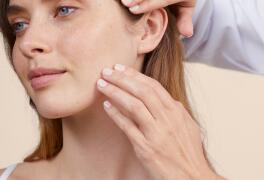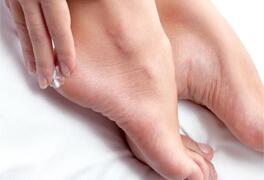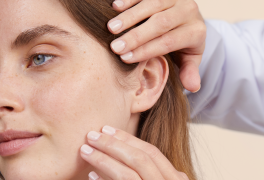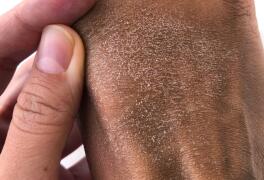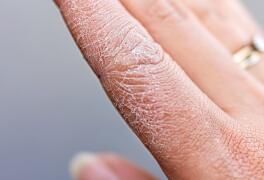EXPERT’S NOTEBOOK
Your baby’s skin
SPOTLIGHT ON YOUR BABY’S SKIN
Your baby’s skin is very fragile. Care, and especially skincare products, baths and nappy changes are special moments. They allow you to create lots of sweet moments.

Playing YouTube videos requires the use of cookies in order to offer you targeted advertising based on your browsing For more information, please visit YouTube's « cookie » policy.
You have rejected Youtube's cookies and therefore you cannot view the video.
You can change your choices by clicking on « Cookie Settings » and accept Youtube's cookies to enable the video.
You can change this setting and withdraw your consent at any time.
IN-DEPTH LOOK
Learn all about your baby's skin
First of all, it has a connective role from birth, as it is through contact with skin that babies are familiar with the world around them. Even before seeing it. It is the carrier of your baby’s first exchanges.
Secondly, it takes on a protective role as skin prevents excessive loss of water, protein, mineral salts, heat, and prevents germs and bacteria from penetrating.
For the skin to correctly fulfil its barrier function, it must be particularly " solid and resistant ” and so, healthy.
However, at birth, it is particularly soft, velvety, fine and therefore fragile, soft and vulnerable.
Although not defective, the skin barrier is far from being an absolute barrier. Great care is therefore required. All the more so for your baby’s skin that calls for all your attention and gentle touch.
Especially since its natural fragility can cause small, or even, sometimes bigger issues.
Small and big concerns
There are many “ enemies ” – you should know all about them:
- Cleansing products that contain surfactants that are used to remove impurities and may sometimes contain irritating substances such as dyes, preservatives, etc.
- Urine and stools that remain in prolonged contact with the skin,
- the sun, which can burn babies skin and cause dehydration. As such, we must be vigilant at all times.
- Trauma (even slight in appearance, such as the simple act of removing a plaster), scratches, even superficial burns, may cause small lesions that quickly become a gateway to infections...
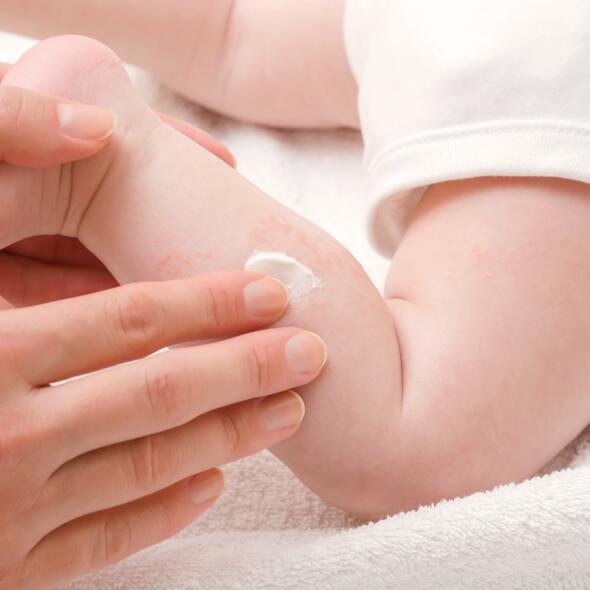
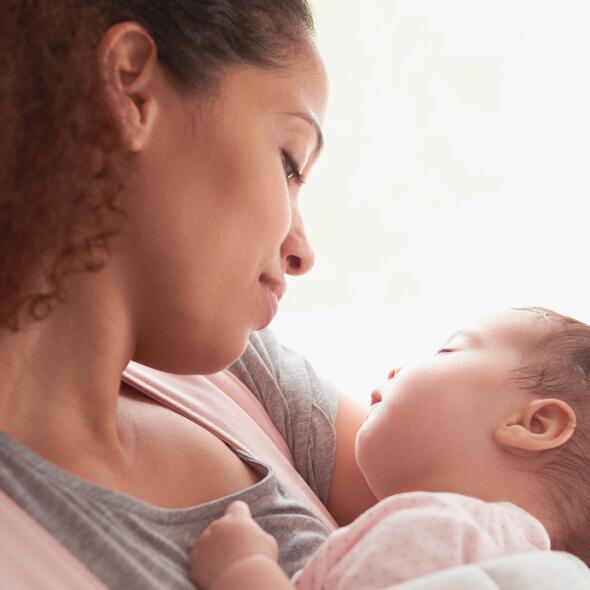
High-tolerance skincare
Care, and especially skincare products, baths and nappy changes are special moments with your baby. Therefore, by combining your baby’s hygiene routine with your baby’s emotional life, you can create tender, loving moments to bond with your child.
But using the safest products is essential.
- Those formulated with minimal ingredients for extreme softness and perfect tolerance,
- fragrance-free, colourant-free, alcohol-free and paraben-free,
- tested under paediatric and dermatological control,
- adapted to the most fragile skin types,
- very high tolerance.
Our expert answers your questions
For caring for your baby's fragile skin
The purpose of washing your baby is to ensure good skin hygiene, mainly to avoid infections. Do not use ordinary soap, which is too irritating or can dry out the skin. Very gentle products suitable for babies' skin should be used. For their hair, use a body/hair product or a specific shampoo that does not sting the eyes, two or three times a week.
Wash their eyes with clean water or saline solution.
To wash their ears, never use a cotton bud; only the outer ear should be cleaned.
For washing their nose, use a small amount of rolled cotton wool soaked in saline to clean each nostril, changing the cotton wool for each side.
In the evening, a bath has calming properties and can help your baby fall asleep. Give them time to splash around . Don't deprive them of the fun of discovering water, of playing with it. The temperature of the bath should be between 36° and 37°C. Wash your baby gently, then rinse them gently, paying particular attention to the skin folds. Make sure you never leave your baby alone in the bath or on a changing table.
Limit yourself to what is essential for hygiene and basic care. Use specific care products that give every guarantee of safety.
Cradle cap is common and harmless. You should remove it gently with a soft brush after softening it with a specific product. If the scabs persist and spread, a medicated ointment may be necessary. Ask your doctor or pharmacist for advice.
Sunlight is essential for the well-being and growth of children but only under certain conditions:
Do not expose your baby to the sun from midday to four o'clock.
Before going for a walk or to the beach, apply a high level of sun protection (SPF 50).
Leave your baby in the shade. If they go out in the sun, always put on a dry T-shirt, a cap or a hat.
- Choose sunglasses (approved, CE marked).
Reapply sun protection regularly (especially after swimming).
Protect your baby under a parasol (but beware of glare).
Make sure your baby drinks often.
Prevention is essential for nappy rash. You should:
Change your baby regularly once they get wet.
Clean your baby's bottom well, i.e. several times a day, at each nappy change, to avoid contact between urine or faeces and the skin as much as possible.
Use a suitable cleansing water or cleansing milk and rinse gently. In case of irritation, spray with a fine mist of Thermal Spring Water.
Dry with a clean, soft cloth or tissue, avoiding rubbing. You can then apply a nappy cream, which acts as an insulator, forming a film between the skin and its " aggressors ". In case of redness, leave your baby's bottom free to breathe without a nappy as often as possible. If, despite all your precautions, the rash persists, consult your doctor.
Discover our solutions
For your baby's skin
Our products adapted to your baby's skin

NEWSLETTER
We’re always here for your skin!
All our tips for taking care of your skin day to day.

Find out more
Read advice from our experts
Which skin care routine should you adopt?
Identify what it really needs with the help of our experts and discover the most suitable skin care routine for you.

